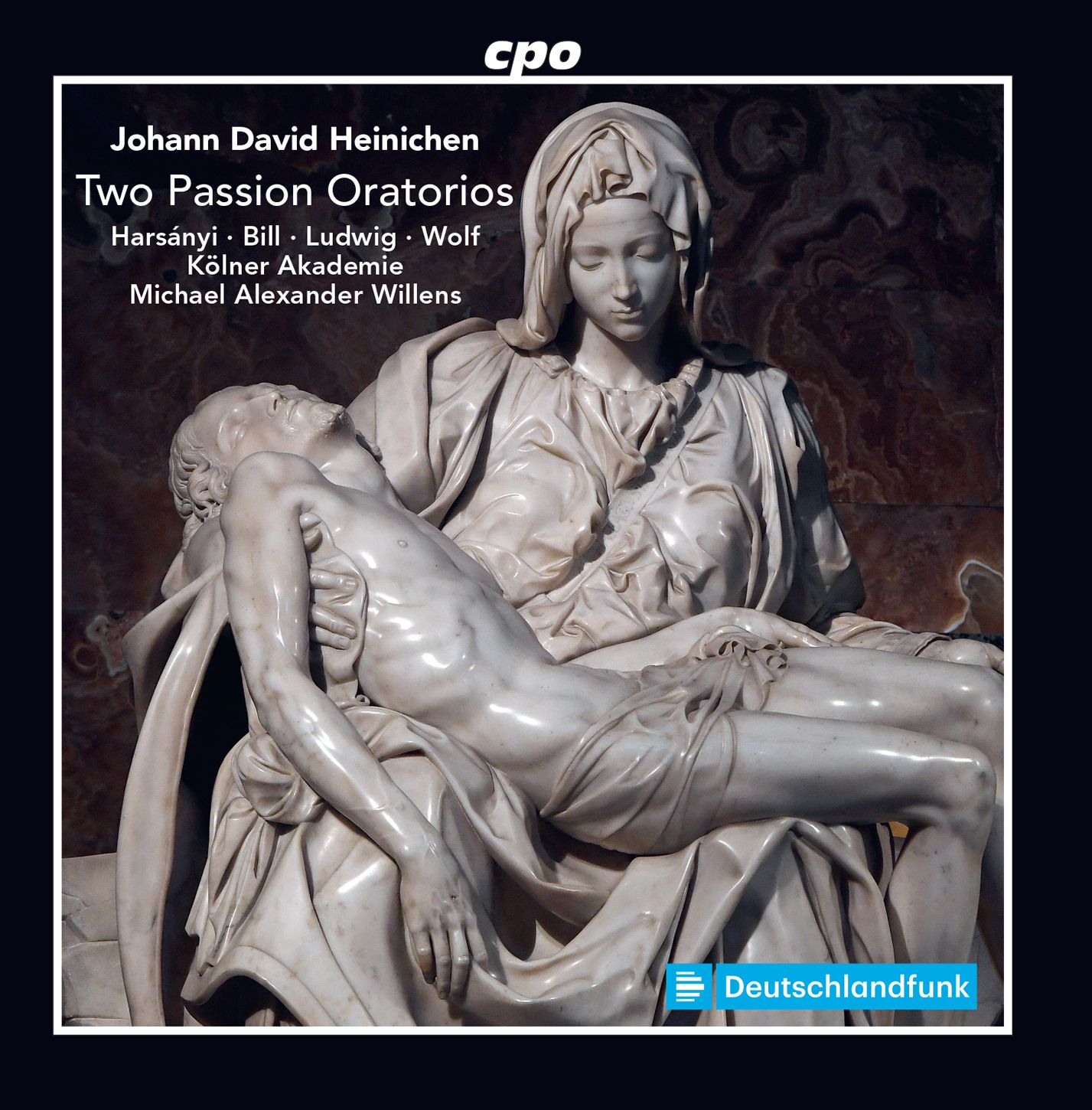Johann David Heinichen: Two Passion Oratorios

Back in March this year, we encountered Johann David Heinichen's Dresden Vespers on the Belgian Accent label. Now the German, Ossnabrück-based cpo label expands the vista with two Passion Oratorios, or to give them the full title, Due Cantate al Sepolcro di nostro Signore; both works were also written for Dresden.
The first we hear, Come? S’imbruno il ciel! Occhi piangete! (1728), contains this gem of a soprano aria, beautifully performed here by Elena Harsányi, “Mio Gesù, dolce adorato”. Harsányi's voice is perfectly pure, vibrato allowed only at the very end of sustained notes, the Kölner Akademie under Michael Alexander Willens joining her with pinpoint accuracy and a supreme sense of grace. The aria approaches a work of genius, surely?:
In line with this heightened expressivity is the almost aria-like recitatives: here's the “Recitativo accomppagnato” (accompanied recitative), "O qual duro penari,” and hear how it segues into the aria, “Genti, genti”. This is the wonderful alto Elvira Bill, a name new to me but one I shall certainly seek out:
Mirko Ludwig's high tenor suits Heinichen's lines perfectly. The aria, ”Madre, non isdegnar” is glorious, the walking bass-line surely Bach-related:
Heinichen's use of a pair of oboes in the bass aria (the superb Andreas Wolf), “Mio Sion, che focesti?” is inspired. This is a glorious aria that seems to go well into the bass register (not a problem for Wolf):
The final chorus us effected one voice to a part:
The second canrata is L'aride tempie ignaude (probably composed in 1724). Its lachrymose Sinfonia is truly beautiful:
Here, we have an allegroical play around the Pasison of Christ, including the characters of Death, Hope, Divine Love and Penance. The bass soloist takes the part of Death. Here's his aria of triumph “Di mio vittoria,” supremely well sung by Wolf:
There is some remarkable scoring in the alto aria “Di Giesù tenere viscere,” with Elvira Bill the suerb soloist (the intervals of the vocal line are quite tricky at times):
Heinichen has a lovely way with the Italian language, as the tenor aria “È non ti sfacci cuor dispietato”; and just listen to the interchange betweem soloist Mirko Ludwig and the pair of oboes from the Kölner Akademie:
Heinichen's scoring can be absolutely radiant, as in the soprano aria “Qual pianto”; the nicely resonant acoustic of the Immanuelskirche in Wuppertal, Germany supports this beautifully:
While this cantata is pensive and shadows pervade, there is a huge amount of beauty here. not least in the gorgeous final chorus (again, taken with one voice to a part):
This is a major release for the Heinichen discography. Performances are scupted with ultimate care; the recording is impeccable; the soloists perfectly chosen.
Heinichen: Two Passion Oratorios